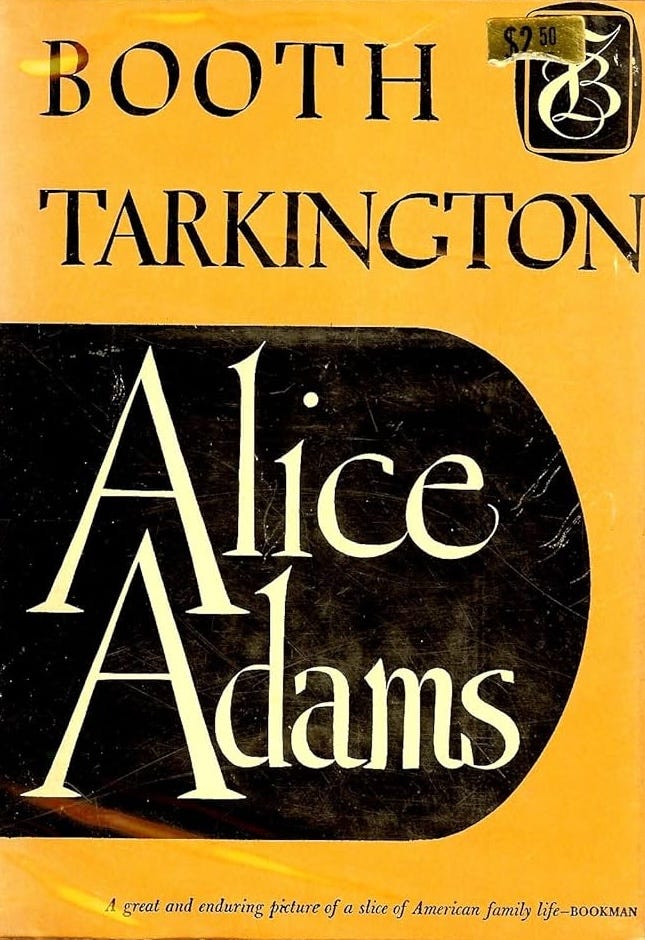What to Read Next: The Dream of Upward Mobility
Issue #336, featuring Edith Wharton and Matthew Desmond

Happy Friday readers and happy 248th birthday to America!
This week I’m featuring two Pulitzer Prize winners, one from over a century ago and another from less than a decade ago. The fact that both books are about the promise and peril of upward mobility shows how central that idea is in the American psyche.
Let’s get right to it!
Evicted: Poverty and Profit in the American City by Matthew Desmond
It’s easy to see why Matthew Desmond’s journalistic report won a Pulitzer in 2017. Shedding light on the underhoused and evicted in Milwaukee, Evicted is an eye-opening account that has me more thankful for the comfort of my home than ever before.
It’s easy to understand the value of home. It offers privacy, comfort, rest, restoration, enjoyment, and so much more. As Desmond profoundly and simply writes, “The home is the wellspring of personhood.”
The privilege of home, however, is all the more apparent when faced with the stories of those who are forced to jump from one unpleasant rental to another due an endless variety of unfortunate circumstances and bad luck.
Though there’s some history and background material, Desmond spends the majority of his pages simply telling the stories of those who are chronically underhoused. As an embedded reporter, he had access to landlords to eviction/repo companies to hanging-on-by-a-thread tenants.
Given the economic crash of 2008 and the subsequent wildly rising costs of housing, Desmond clearly shows the deep and personal impact of the crisis. And once someone has been evicted, the long-lasting ripple effects ensure that they almost always end up on a years-long treadmill of trying to get back to stability.
Every chapter was emotionally impactful; it’s nearly impossible not be sympathetic towards the main characters as well as angry at the system that has morphed property management into a purely capitalist endeavor.
Evicted is the kind of book that the Pulitzer Prize was made more. It documents one of the dark underbellies of life in America and profiles the people who make this country what it is. By the end, the only thing that felt missing was an overview of just how critical housing is to one’s wellbeing as well as any solutions that might be possible. Thankfully, Desmond provided a long epilogue consisting of just that. This book is as important as it gets and is well worth your attention.
Alice Adams by Booth Tarkington
When Booth Tarkington won his second Pulitzer award within a four-year span in 1922, he probably didn’t realize he was cementing himself in American literary history. In those early days, the prize didn’t quite have the same prestige it would gain in later decades. As I noted a few weeks ago, though, he’s one of just four authors to have twice won the fiction prize.
After reading both of his prize-winning titles, I’m glad to say that Tarkington’s work holds up very well in the 21st century.
The Adams family is solidly middle class but youthful Alice desperately aspires to reach higher. She finds herself on the outside of the most privileged social circles and will do just about anything to get into them. When the dapper and wealthy Arthur Russell shows up in our unnamed Midwest city, Alice spies a perfect opportunity to achieve her aims.
Arthur is mostly unaware of Alice’s social status and becomes smitten with her. Our young heroine can’t hide the truth forever, though. How will Arthur respond when Alice’s average home and family and life are revealed? It’s a timeless setup that’s become a trope in the rom-com genre, but Tarkington gives it uncommon nuance and wisdom.
This story has a lot to say about ambition, social status, and the shallowness of the wealthy’s gilded lifestyles. Compared to The Magnificent Ambersons, I found the characters in Alice Adams to be a little more likable and a little more complex. The two books are rather similar in theme and style and I really enjoyed both. I’m happy to recommend them to anyone who enjoys coming-of-age dramas with class relationships at the center.
Thanks so much for the time and attention. I deeply appreciate it.
-Jeremy



I read this book earlier this year and Desmond points out the impact of poor physical and mental health as well as drug addiction on those who are evicted. As a country, we are very derelict in our duties to offer treatment which certainly accounts for the increase in the homeless population. Not to mention the cost of housing.
For me one of the strengths of Evicted is that the reader meets real people, Desmond puts a face to the statistics. He had another book come out last year that was equally eye opening. The title is Poverty, by America. Desmond looks at the fact that the United States is the richest country in the world while at the same time has more poverty than any other advanced democracy.
I’m looking forward to reading Alice Adams. Thank you for your recommendations.